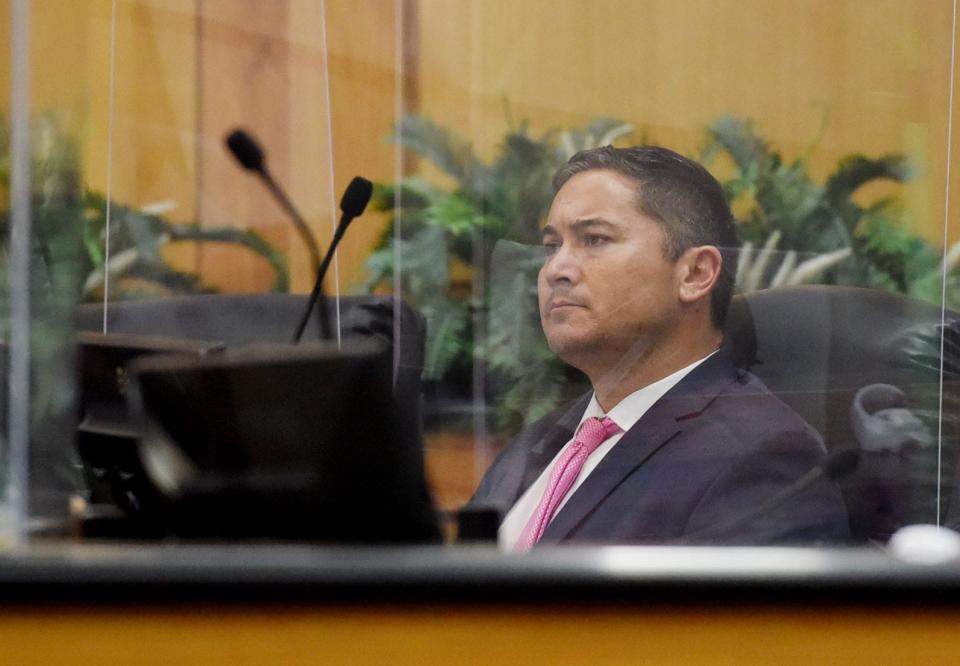LSU Shreveport nearing completion of local Civil Rights Trail with 40+ information markers
Called to the Caddo Parish Commission’s Thursday meeting to discuss the area’s history of lynching and the remaining symbols from that time, social studies professor Gary Joiner also delivered the news that a civil rights trail mapped by Louisiana State University Shreveport will soon be open to the public.
Joiner said the university, for which he is the department chair for history and social studies, has selected nearly 40 sites throughout Caddo Parish where hikers will find information about the civil rights history associated with that area. By time it launches, he thinks there will be 50 sites.
He didn't have a launch date for the trail but said the university would appreciate the commission’s help.
“We have to have the lines that connect the dots,” Joiner asked. “How did we get here? What did we do?”
“We need to show where the first downtown sit in was. We need to show not only the bad things but the good things,” Joiner added.
Joiner suggested the trail would be better if it had interactive visual presentations triggered by QR codes.
Two weeks ago, the commission voted against cutting down a tree at the Caddo Parish Courthouse rumored to be once used for lynchings.
They also voted against issuing an official apology for the parish’s reputation as “Bloody Caddo,” a phrase originated in the late 19th Century to describe the amount of lynchings and other violence that occurred in Caddo Parish.
Joiner was called to the commission Thursday by Commissioner Mario Chavez, who said he’d never heard of such a reputation. Chavez voted in favor of the apology.

Though Caddo Parish had less lynchings than Bossier and Ouchita Parishes, it was unique for a culture of judicial and extrajudicial lynchings, Joiner said.
“It was an economic model: people thought a criminal trial would take time and soak up expenses,” Joiner said.
More: What's likely inside time capsules found in Caddo Parish Courthouse Confederate statue?
“People here took a liking to the ideal - today everybody of course would find that to be abhorrent,” Joiner added.
Kendrick Dante writes for the USA Today Network and is a government watchdog reporter in Shreveport, Louisiana. He enjoys cooking, concerts, and content. Email him at kdbrown1@gannett.com or connect on Twitter @kendrickdante.
This article originally appeared on Shreveport Times: LSU Shreveport nearing completion of Civil Rights Trail

